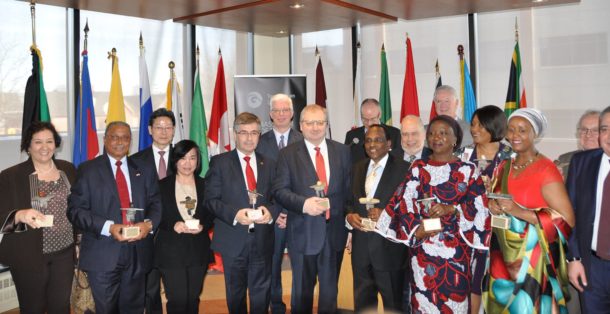 image (not from entry) fromZeitenblicke
image (not from entry) fromZeitenblicke
Volume 12, 2013-09,
ISSN: 1619-0459
Publisher: Digital Peer Publishing NRW
An international approach to the cultural Cold War: public diplomacy towards Africa
Author:
Gerits, Frank
Abstract:
This article analyzes how the tactics behind French public diplomacy [JB emphasis] in West-Africa and Congo-Leopoldville/Kinshasa evolved between 1945 and 1965. To overcome the low appeal that French propaganda had for Africans, the French gradually integrated the successful methods that their competitors in Africa employed into their own strategy. It shows that the battle for African hearts and minds was global, that Ghana and Egypt were active, and that intercultural, propaganda agencies adopted and adapted each other's successful strategies. In doing so, it hopes to emphasize the explanatory potential of a genuine international approach to diplomatic history.
The norms of diplomatic culture are an emerging field of study in International Relations among English School and Constructivist scholars. However, there exists a more neglected piece of IR scholarship dedicated to diplomacy. While Nkrumah’s vision for union government was defeated by those leaders who sought a more incremental approach to integration, the significant evolution from the OAU to the AU in 2001 signaled a shift in goals for the organization. The importance that diplomats play in the move towards regional integration has not been explored at the AU, but the role that this community can play has been detailed by Mai’a Davis Cross at the European Union. In Africa, the diplomats are a hand-brake to the more integrationist Africrats. 2. Public diplomacy and cultural diplomacy. As R.Lawniczak noted in Poland until recently public diplomacy was understood in its narrower meaning as cultural diplomacy5. It is worth noting, however, that there are a number of theoretical approaches to the relationship between the two concepts. Before entering into discussing them I would like to focus on the concept of public diplomacy. The term public diplomacy was first coined in 1965 by E. Guillon [JB – sic]. He felt that public diplomacy is concerned with the influence of social standpoints have on the formulation and implementation of foreign policy. Public Diplomacy [:] In essence Public diplomacy is seen by some analysts in the context of inter-cultural communication. Public Diplomacy [:] In essence, public diplomacy is “an international actor’s attempt to manage the international. environment through engagement with a foreign public” (Cull, 2009, p. 12). Yet, the nature of the “international actors”, of their “environment” as well as that of their “engagement” has undergone fundamental transformation since the term came about, and has been subject to much debate, both among academics as well as practitioners. important to pay special attention to the social constructivist approach, according to which individual state interests and strategies are established based on the historical, political and cultural contexts – domestic and international – within which the state operates (Katzenstein, 1996b).
Original Article
Public diplomacy John Brown's Public Diplomacy Press and Blog Review An international approach to the cultural Cold War: public diplomacy towards Africa







